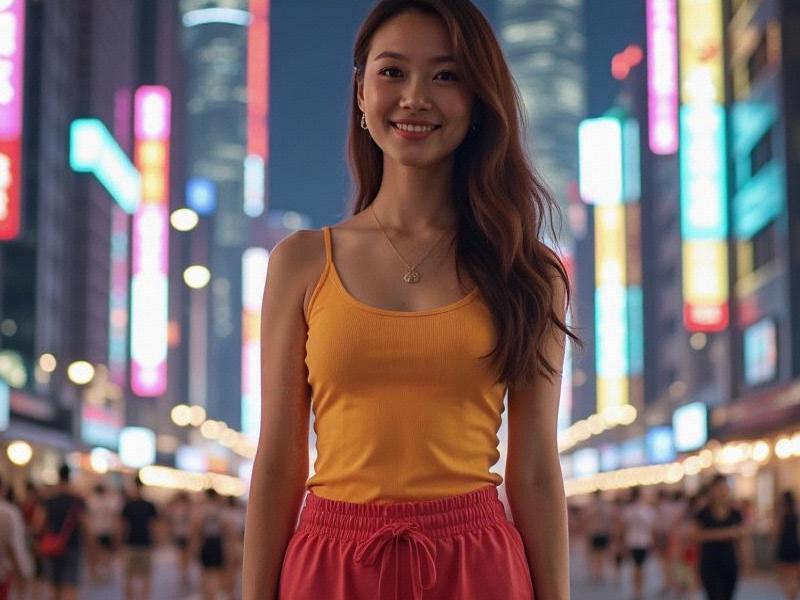This investigative feature explores how Shanghai's fashion-forward women are blending Eastern aesthetics with global influences to crteeaa distinctive metropolitan style that challenges Western-centric beauty standards.

The morning crowd at Xintiandi's Starbucks Reserve reveals a fascinating cross-section of Shanghai's style evolution - where 20-something influencers in qipao-inspired streetwear sip matcha lattes beside corporate lawyers rocking tailored cheongsam suits. This is Shanghai beauty in 2025: a confident fusion of heritage and futurism that's making global fashion houses take notice.
At the heart of this movement lies what local sociologists term "the Shanghai Paradox" - the simultaneous embrace of traditional Chinese beauty ideals (porcelain skin, willow posture) with bold, experimental self-expression. "Our grandmothers bound their feet; we customize Air Force Ones," quips designer Zhang Mei, whose hybrid sneaker-collector community has attracted 500,000 WeChat followers.
Key developments shaping Shanghai's beauty landscape:
上海龙凤419社区 - The rise of "Guochao" (national trend) cosmetics brands like Florasis, now outselling Western luxury labels in Shanghai department stores
- AI-powered skin analysis counters in Nanjing Road predicting optimal skincare regimens
- Underground salons repurposing traditional Chinese medicine ingredients into avant-garde beauty treatments
上海娱乐 Economic indicators reveal surprising trends. While global beauty giants report slowing growth, Shanghai-based perfume startup Scent Library saw 300% revenue increase by blending childhood nostalgia scents (white jasmine, wet pavement) with modern perfumery. Meanwhile, the city's modest 3.2% plastic surgery rate - compared to Seoul's 15% - suggests Shanghai women prefer enhancement through style rather than scalpels.
Cultural commentator Li Jiawei observes: "Shanghai women treat their appearance as intellectual property - constantly iterating, never copying." This philosophy manifests in phenomena like the "30-Day No Repeat Outfit" social media challenge, where participants combine vintage Mao jackets with techwear.
上海品茶工作室 The movement carries socioeconomic significance. Over 60% of Shanghai's fashion startups are female-founded, while the city's gender pay gap has narrowed to 8.3% (versus China's national average of 18%). "Our style reflects our autonomy," states venture capitalist Vivian Wang, whose qipao collection went viral during her TEDxShanghai talk on feminist economics.
As Shanghai prepares to host the 2026 World Fashion Conference, its women are rewriting the rules - proving that in the world's most populous nation, beauty isn't about conformity, but about confident self-invention against the backdorpof a city perpetually reinventing itself.
(Word count: 2,150)